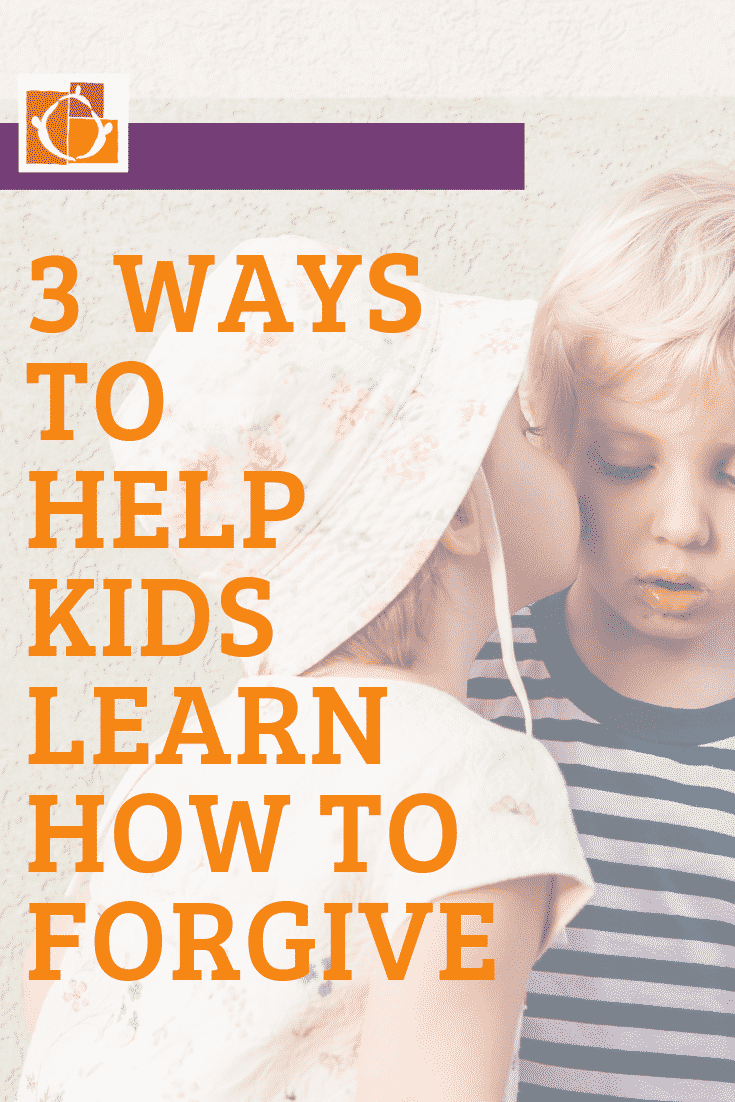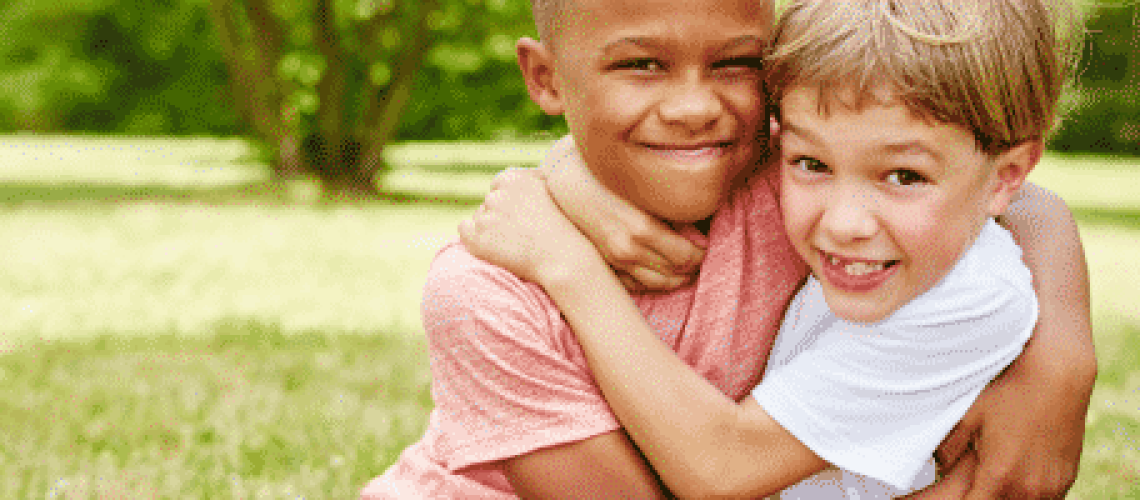Want to teach your child forgiveness? Here are 3 ways to get started.
Let’s face it. No one is perfect.
None of us want to be defined by the worst thing we’ve ever done, and we’ve all done things we wish we had not.
We all need forgiveness.
But it's way easier to say than to do.
For me, this lesson began with a blue plate and my mother's tears.
It was hectic that day in the Evans’ home, which was not unusual in our big family.
The exact details of how it all started have been lost in the shuffle.
One child, whose identity is thankfully forgotten, broke something belonging to another.
Tempers flared.
Angry words were exchanged.
Our mother, Joy, brought all of us kids together and gave us a little lecture on the virtue of forgiveness. She patiently explained that accidents and mistakes happen, that we shouldn’t let ourselves get upset, that family relationships are more important than material things,
Yada, yada, yada…You’ve heard it all before.
It’s what happened next that made that day different from all of the rest.
What Happened Next Brought Us Closer
Everyone had soon forgotten the squabble, as kids so often do, and we were playing happily together.
Then, in the commotion, a beautiful blue plate of mom's fell from the wall and crashed to the floor.
This plate had been a gift of love and appreciation from our dad.
With tears streaming down her face, her voice shaking, Mom gathered us together once again.
“It is so much easier,” she confessed, “to speak of forgiveness when it is someone else’s prized possession.”
Isn't that the truth?
The pain of the loss is real, and that is what makes choosing to forgive so powerful.
How Can You Help Your Child Foster Forgiveness (without lectures and broken plates?)
As a parent, you have the opportunity to help your child discover the power of forgiveness. To teach them skills they need to be able to forgive and move on.
As children begin to give and receive forgiveness, they learn that even though they cannot change the past, they can shape the present and the future.
They realize that, with forgiveness, mistakes are not the end of the story but the beginning of a new chapter, and one they can write.
As they write those new chapters, kids grow resilient and better able to take life's many missteps and pains in their stride. They move forward stronger, more confident, and more capable.
But how do you start teaching the concept of forgiveness?
As my mom found out that day, there can be no real forgiveness without one other thing.
That day my mom experienced a deep surge of empathy as she really put herself in the other person’s shoes.
We cannot forgive if we don't have empathy.
Empathy puts the ability to forgive on the fast track, even though it may still take some time to get through feelings of hurt or loss.
3 Ways To Start Teaching Empathy and Forgiveness
So in order to foster forgiveness, we have to begin by fostering empathy. Here are 3 ways to start.
Begin with feelings: Before children can fully appreciate other people’s feelings, they need to understand and respect their own.
- Make sure your child knows age-appropriate, accurate feeling words, starting with the basics, like happy, sad, angry, or scared.
- When you are both emotionally calm, talk about the facial expressions and body sensations that go with different feelings.
- Cut out pictures from magazines, print images from the Internet or make simple drawings yourselves. Think how artists convey the emotions of cartoon characters, like steam coming out their ears, zagged lightning bolts, question marks, butterflies in their stomach, hearts flowing around them or glowing rays of sunshine.
- Make it safe for your child to feel and tell you about the “bad” feelings, like hurt, fear, sadness, and anger, as well as the “good” feelings, like happiness, excitement, calmness, and joy. Every feeling should be safe.

Practice Empathy. Empathy is built on seeing the world through others’ eyes. Start to practice this with your child.
- Go to the food court at the mall, the park, or any place near you where people gather and walk (licking an ice-cream cone or munching on a crisp apple while you’re there can make this even more fun).
- Take turns picking out people, describing how you think they are feeling, and how you can tell. “I think that little boy is tired and bored. I can tell by how he is whining and dragging his feet.”
- Developing empathy when your child is not upset or involved will make it easier for him to have empathy and choose forgiveness when he is.
Take Turns. When other people aren’t there for you to observe, try it the other way around.
- Ask your child to think about how a small child who is tired and bored might act at the mall or the grocery store. Have her act it out. Now let her think of a scene for you to act out.
- Be playful and have some fun with this. An older child can tackle more complicated or sophisticated scenarios. How would a 12-year-old girl feel if she was cut from the team? What if a 16-year-old asked someone out and was rejected?
- Talk about different ways kids might act in response to their feelings?
Empathy and forgiveness go hand in hand
Together, they help your child develop a deep respect for themselves and others, and frees them from carrying the burden of grudges and regrets and embrace life's challenges.
What Happened to The Plate?
Dad glued the plate together as best as he could and hung it back on the wall.
The Blue Plate became a family symbol of putting things in perspective, forgiveness, and love.
When Mom passed away in 2012, the patched Blue Plate was one of her cherished possessions and had been carefully preserved for future generations.
Imagine the freedom your child will experience when they know without a doubt that no matter what happens, they can let it go, forgive, learn, and move forward.
Who knows? One day it may be your child's favorite toy that is broken, and another it might be your best plate.
 You'll find more thoughtful and connecting ideas in The Resiliency Toolkit: A Busy Parent’s Guide to Raising Happy, Confident, Successful Children, a wonderful new resource from Anne Evans-Cazier, LCSW, and her husband, Calvert F Cazier, PhD, MPH.
You'll find more thoughtful and connecting ideas in The Resiliency Toolkit: A Busy Parent’s Guide to Raising Happy, Confident, Successful Children, a wonderful new resource from Anne Evans-Cazier, LCSW, and her husband, Calvert F Cazier, PhD, MPH.
